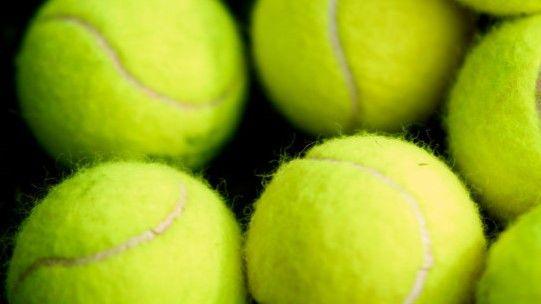Nadal's top 10 moments - and which was your favourite?
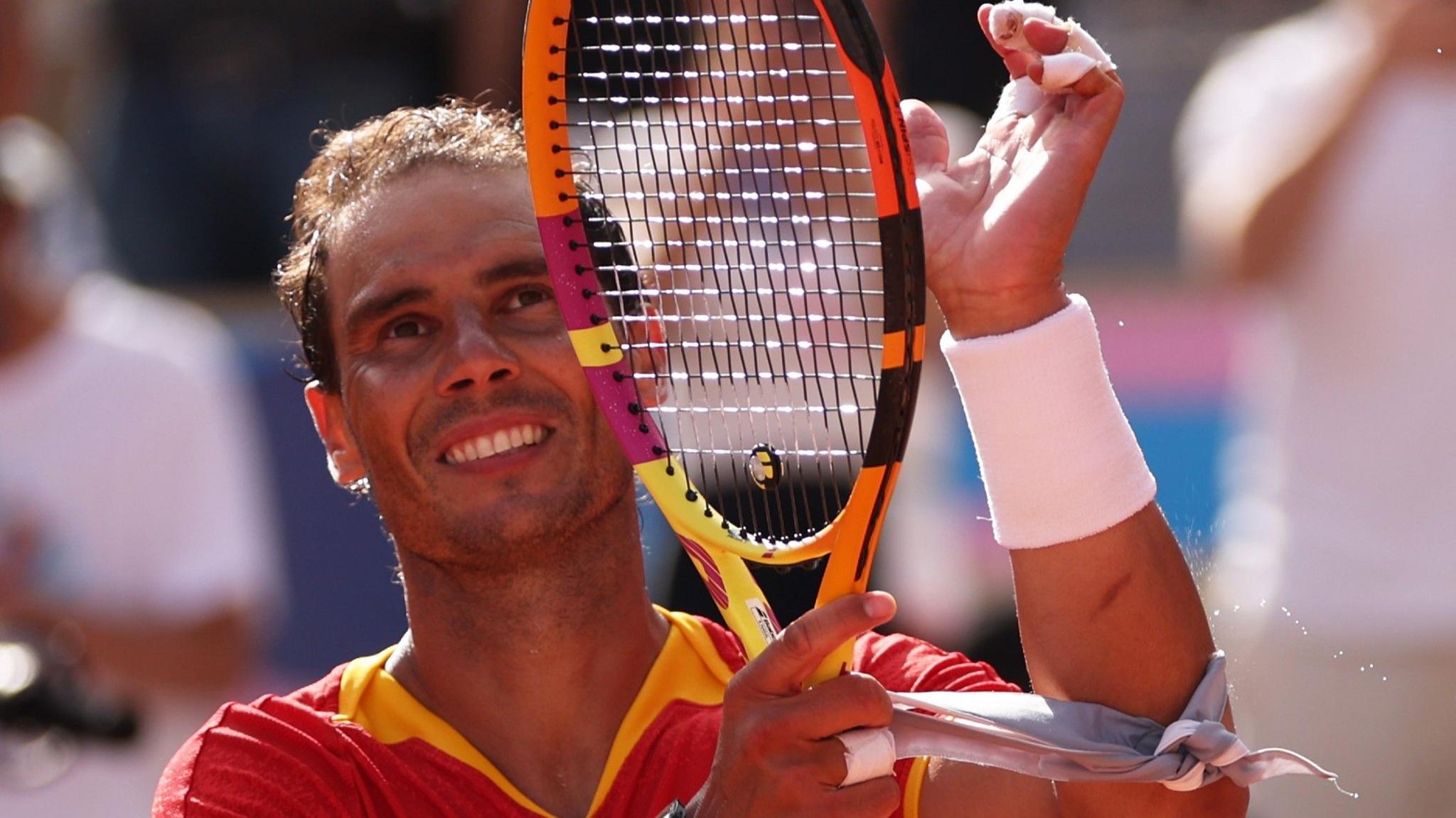
- Published
Rafael Nadal has announced he will retire at the end of the season, when he will depart the sport as a 22-time Grand Slam champion and one of the greatest to have ever picked up a racquet.
The 38-year-old, who turned professional in 2001, will represent Spain in his final appearance at next month's Davis Cup Finals in Malaga.
Here BBC Sport looks back at 10 iconic moments from his career in chronological order - and you can find out which received most votes from our users.
2004: Nadal 1-0 Federer
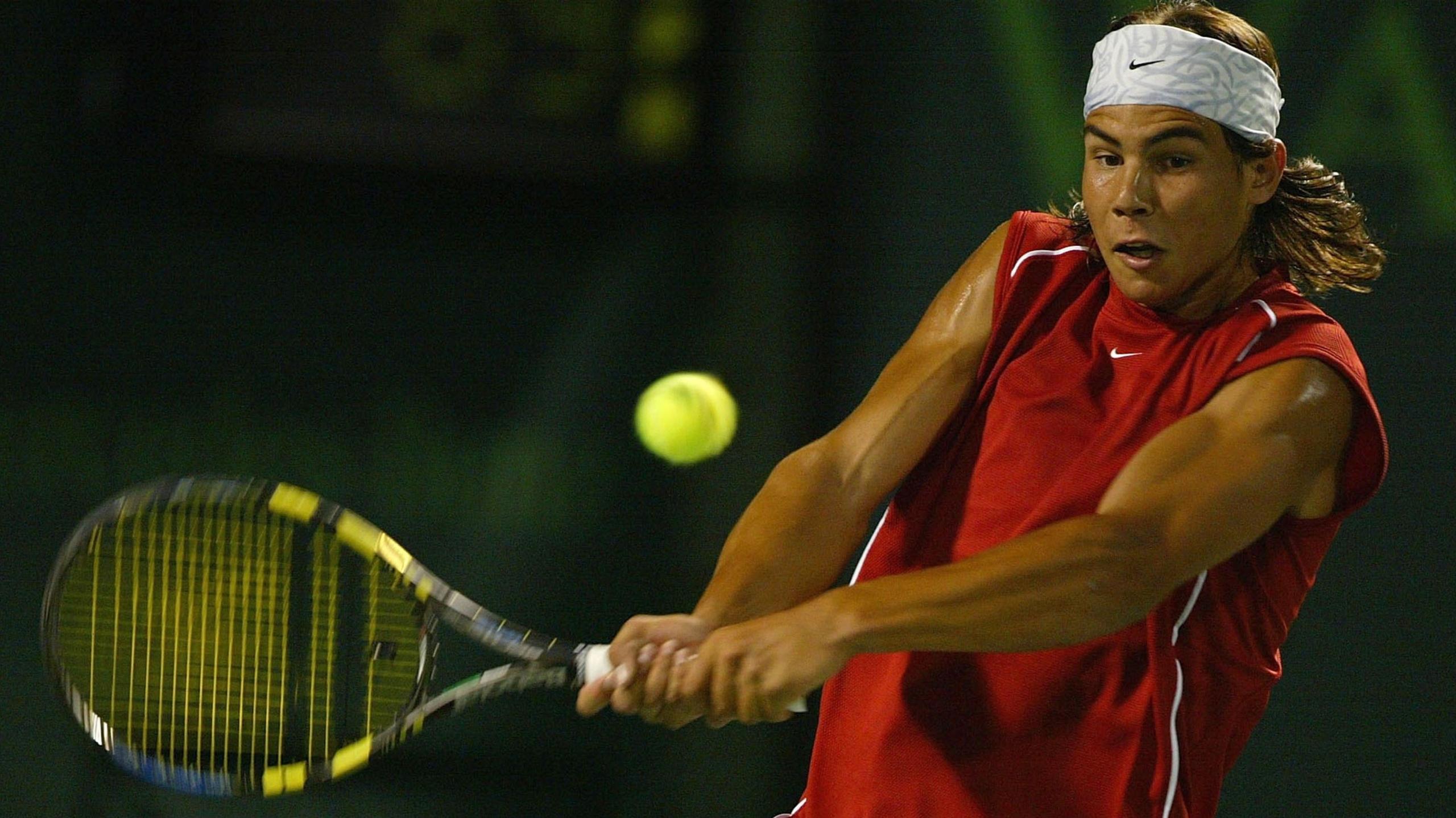
Those in attendance at a third-round tie at the 2004 Miami Open had little idea they were watching the start of the greatest of rivalries when they took their seats to see world number one Roger Federer take on a 17-year-old Spanish teenager - albeit one who was already making waves.
Ranked 34th, Nadal stunned the Swiss 6-3 6-3 in 70 minutes, ending Federer's 12-match winning streak and becoming only the second man to have beaten him that season after former British number one Tim Henman.
Federer admitted he was "impressed" with what he saw, while Nadal played down the win by saying his opponent had not played his best. He doubted it would attract any newspaper coverage but hoped his win would garner attention "online and on Teletext".
Nadal and Federer would go on to meet a further 39 times, with their head-to-head record ending 24-16 (14-10 in finals) in Nadal's favour when Federer retired in 2022.
2005: First Grand Slam title
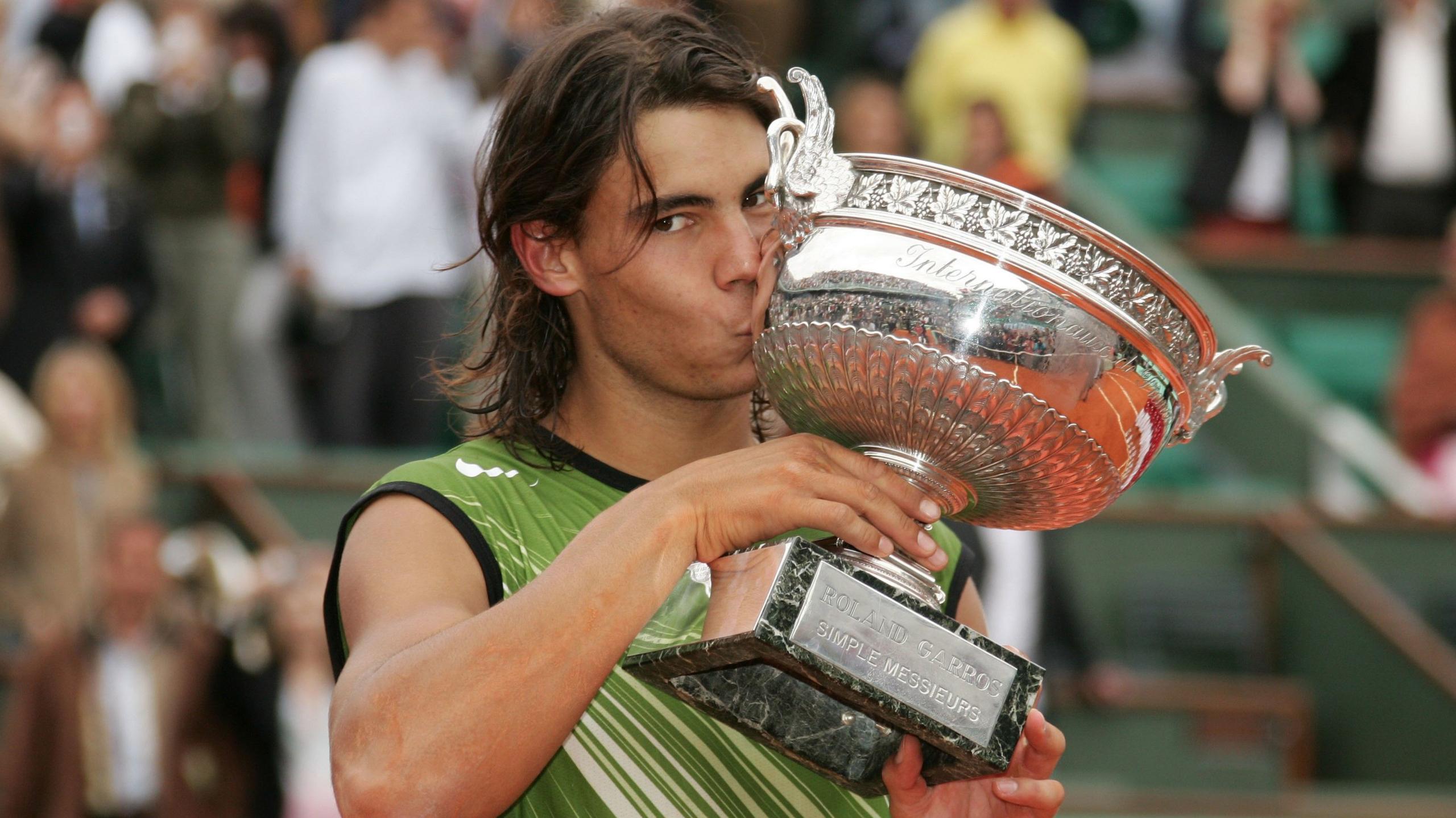
The year 2005 was when tennis truly realised what had hit it.
Already showing his prowess on clay courts, Nadal won 24 consecutive singles matches in the spring, breaking Andre Agassi's Open era record of successive match wins for a male teenager.
By the time the French Open came around, he had risen to number five in the world and beat Federer in the semi-finals at Roland Garros on his 19th birthday.
In the final, he defeated Argentina's Mariano Puerta 6-7 (6-8) 6-3 6-1 7-5 to win his first major, becoming only the second man to win the French Open on his first attempt after Mats Wilander in 1982.
He was also the first male teenager to win a Grand Slam singles title since Pete Sampras' first US Open triumph in 1990.
Nadal would go on to finish the 2005 season ranked second in the world, having won 11 singles titles, eight of which were on clay.
2008: First Wimbledon title
By 2008, Nadal had twice reached the final at Wimbledon, and twice been defeated by a now five-time champion Federer. But it was to be a case of third time lucky for the Spaniard, who arrived in SW19 off the back of 17 consecutive match wins.
Federer, meanwhile, had spent 231 consecutive weeks as world number one, but had been beaten 6-1 6-3 6-0 by Nadal in the French Open final just a couple of months earlier.
Rain delayed the start of the final, which would be the last match played on Centre Court before its roof was installed, but while further rain interruptions followed, it did little to spoil the theatre on show.
Considered the "greatest match ever" by John McEnroe, Nadal defeated his Swiss rival 6-4 6-4 6-7 (5-7) 6-7 (8-10) 9-7 in a four-hour-48-minute epic - at that point the longest Wimbledon final in history.
It gave Nadal his first Grand Slam title outside Paris - he was by then a four-time champion at Roland Garros - and he also became the first man to win the French Open and Wimbledon back-to-back since Bjorn Borg in 1980.
Why was 'the greatest match' so great?
- Published10 October 2024
Watch: Federer vs Nadal (2008)
- Attribution
2008: Olympic gold & world number one
Nadal's victories in Paris and London meant he was the favourite to win gold at Beijing 2008, where he was making his Olympic debut alongside future foes Novak Djokovic and Andy Murray.
Top seed Federer was eliminated in the quarter-finals, paving the way for Nadal - who beat Djokovic in three sets in the semi-finals - to set up a battle for gold with Chile's Fernando Gonzalez.
In the final, Nadal triumphed 6-3 7-6 (7-2) 6-3 and as a result rose to the top of the world rankings for the first time, ending Federer's record 237-week reign.
Nadal would go on to win Olympic doubles gold eight years later in Rio with Spain team-mate Marc Lopez.
2009: First Australian Open title
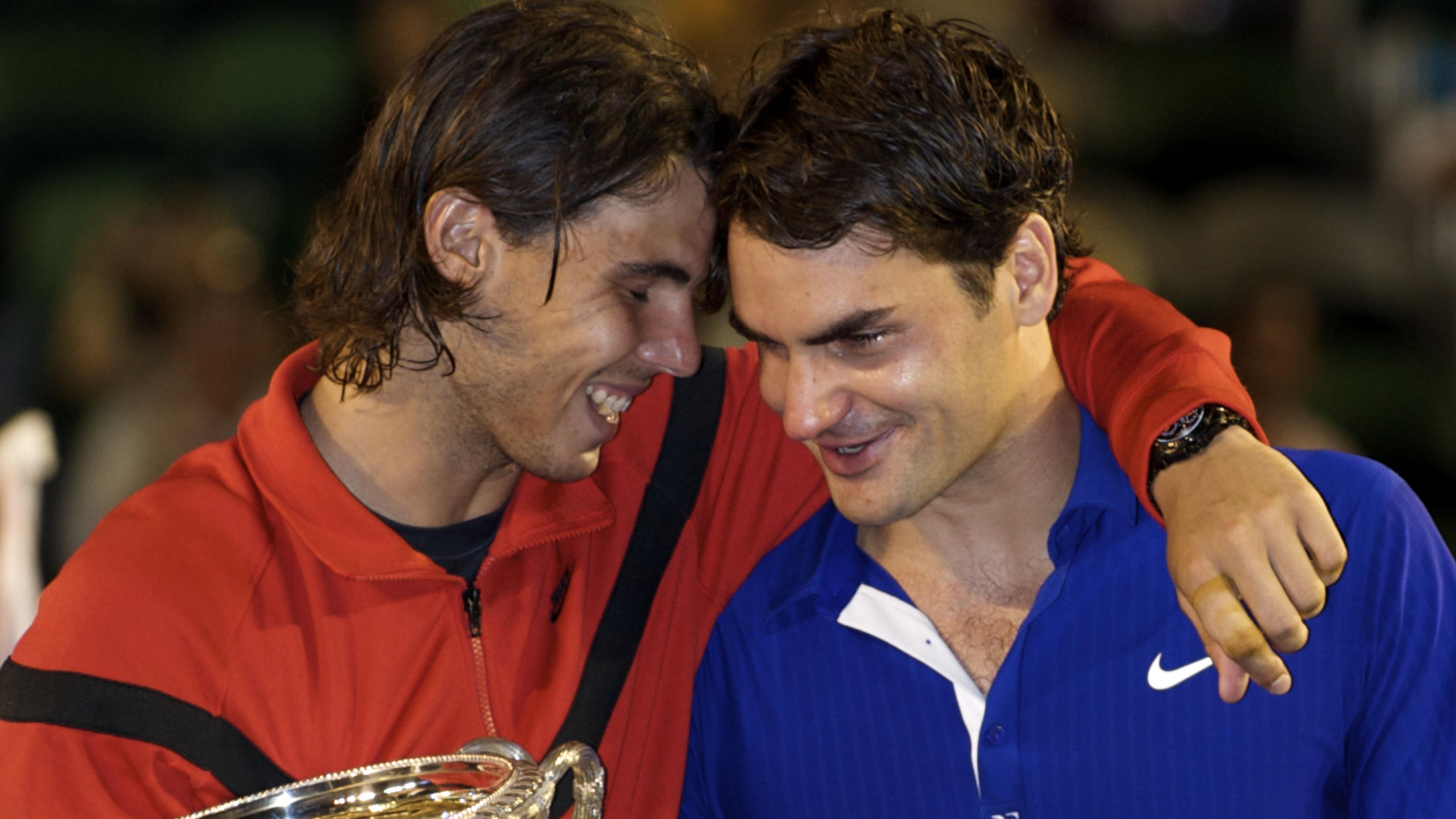
Nadal's first Australian Open final in 2009 marked his eighth appearance in a major showpiece - his seventh consecutive against Federer.
To get there, he had already overcome compatriot Fernando Verdasco in the semi-finals in a five-set epic that lasted five hours and 14 minutes - the longest singles match in tournament history until Djokovic's victory over Nadal in the 2012 final, which lasted five hours 53 minutes.
In his first major final on a hard court, Nadal - still remarkably fresh despite his lengthy last-four tussle - defeated Federer 7-5 3-6 7-6 (7-3) 3-6 6-2.
He became the first Spaniard, male or female, to win the Melbourne Slam, as well as the first man in the Open era to hold three major titles on three different surfaces at the same time.
For a tearful Federer, it denied him a 14th Grand Slam title, which would have drawn him level with the then all-time men's record held by Sampras.
2010: Career Grand Slam in New York
To date, only eight men have completed the career Grand Slam - winning all four major titles - and Nadal was the seventh to join the exclusive club.
That came in 2010, a year Nadal would later say was the best of his professional career.
Reaching the rain-interrupted final of the US Open without dropping a set, he beat Djokovic 6-4 5-7 6-4 6-2 for his first title at Flushing Meadows and to complete the career Grand Slam.
Victory also made him only the second male after Agassi to complete a Career Golden Slam - which includes Olympic singles gold - and the first man to win majors on clay, grass, and hard courts in the same year, as well as the first man since Rod Laver in 1969 to win the French Open, Wimbledon and US Open (which was then played on grass) in the same year.
2017: 'La Decima'
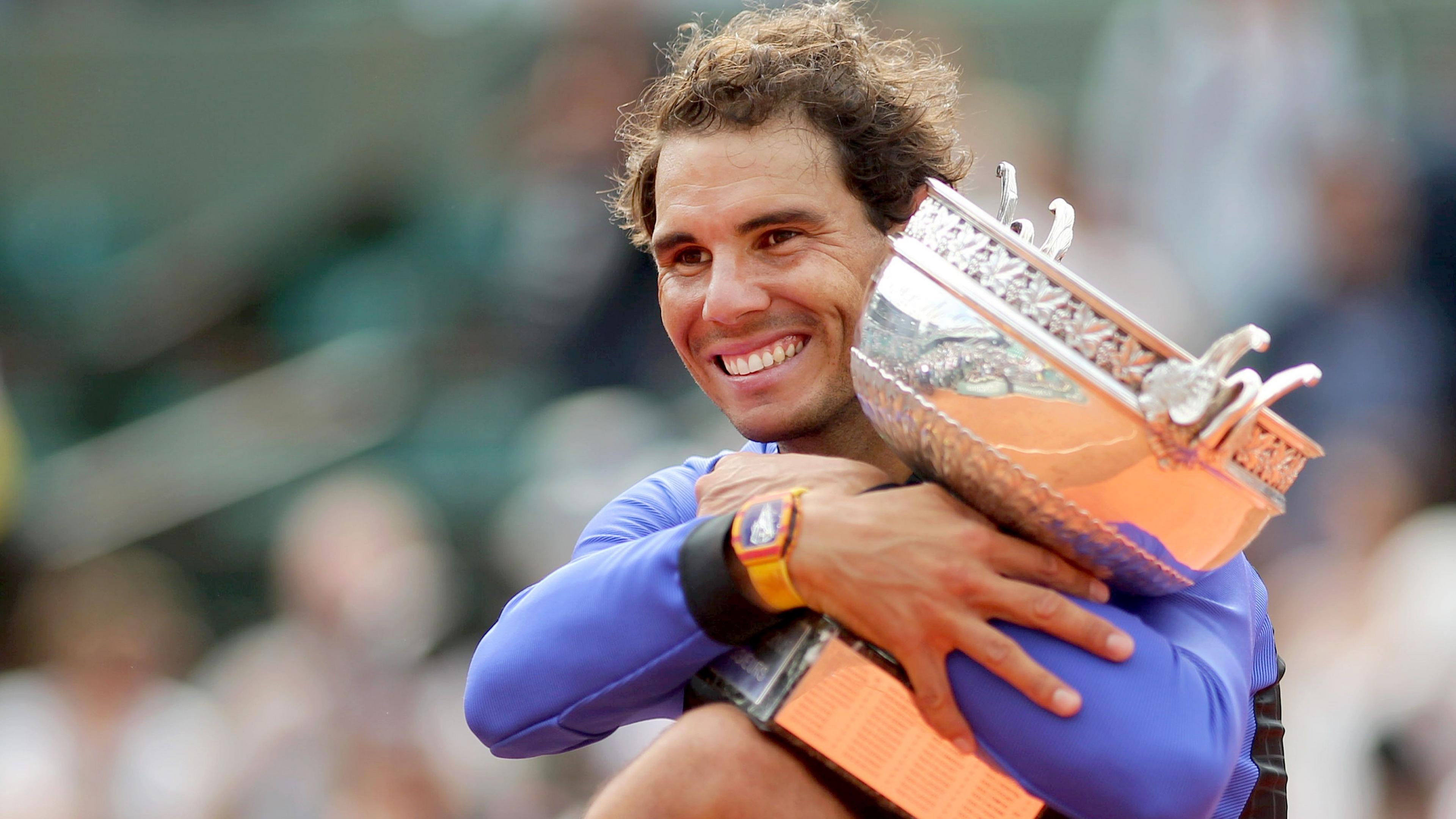
After Nadal's 2014 French Open win, a three-year drought ensued amid injuries and a drop in form, with the Spaniard not reaching a Grand Slam final until the Australian Open of 2017, in which he was beaten by Federer.
But write him off at your peril. Having won titles on the clay of Monte Carlo, Barcelona and Madrid, a resurgent Nadal returned to Paris as the favourite to land the 2017 title.
In beating Federer's fellow Swiss Stan Wawrinka 6-2 6-3 6-1 in the final, the 'King of Clay' became the first person in the Open era to win a Grand Slam tournament 10 times.
It also marked his 15th major victory, nudging him above Sampras on the list of all-time men's winners into second place behind Federer.
2022: Moving clear at the top
After a difficult end to 2021 in which a foot injury threatened to end his career and a bout of Covid-19 left him "very sick", Nadal travelled to the 2022 Australian Open having played just one tournament since the previous August.
But, in the absence of the deported Djokovic and the injured Federer in Melbourne, Nadal won his second Australian Open title - 13 years after his first - by beating Daniil Medvedev 2-6 6-7 (5-7) 6-4 6-4 7-5 in a five-hour-24-minute final that finished at 01:11 local time.
Yet this was not just another Grand Slam title. It was his 21st, a men's record that moved him ahead of Djokovic - who has gone on to take top spot with 24 - and Federer.
"Without a doubt it is one of the most emotional wins of my career," said a "physically destroyed" Nadal afterwards.
2022: Number 22
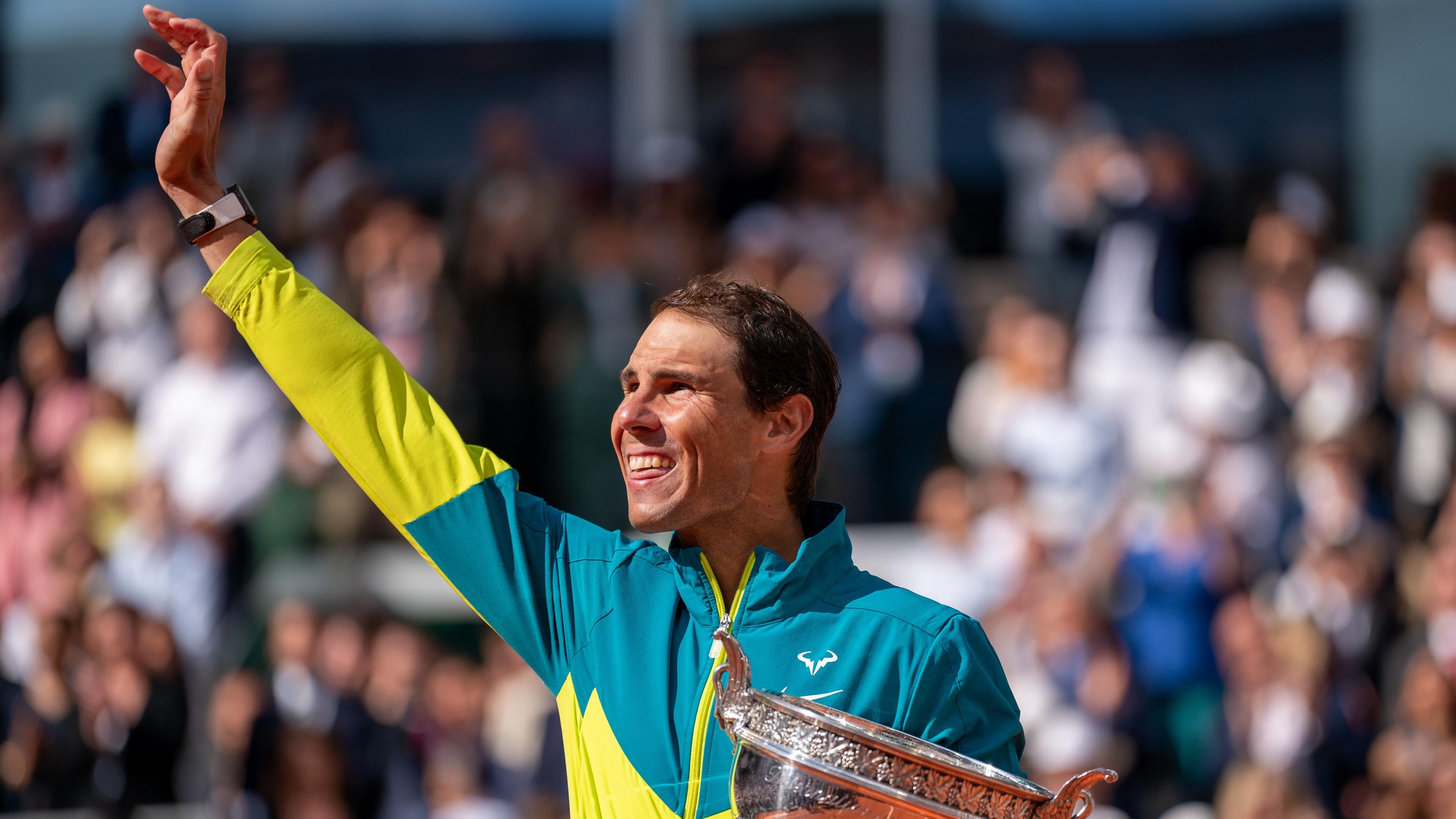
It would be just four months before 21 became 22, and where else other than at Roland Garros?
Having fallen in the semi-finals a year earlier, 2022 was the chance for Nadal to reclaim his French Open crown - and he did so by beating Norway's Casper Ruud 6-3 6-3 6-0 for his record-extending 14th Parisian title.
With the final coming two days after his 36th birthday, Nadal became the oldest French Open men's singles champion, surpassing fellow Spaniard Andres Gimeno, who was 34 when he triumphed in 1972.
Victory moved him two ahead of Djokovic and Federer at the top of the all-time list for Grand Slam titles on 22 - a figure that his retirement means he will stay on.
2022: One last dance with Federer
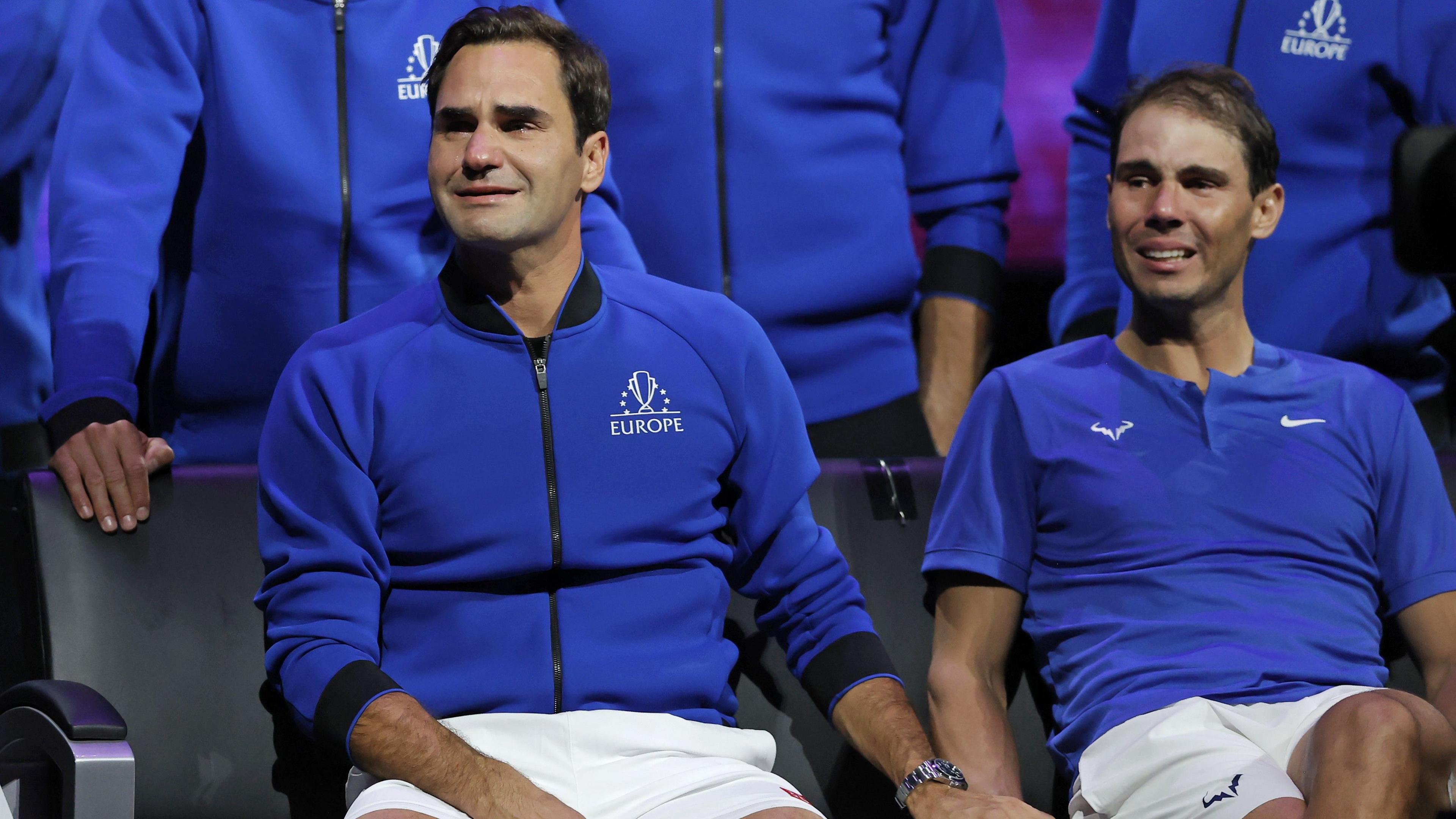
In September 2022, Federer announced he would retire after that month's Laver Cup - a competition in which he teamed up with Nadal, Djokovic, Murray, Ruud and Greece's Stefanos Tsitsipas in a Europe side taking on a team representing the rest of the world.
It was perhaps fitting, then, that his final match was a doubles contest alongside Nadal, for so long his fiercest rival but also a good friend.
The pair - affectionately nicknamed 'Fedal' - almost won their tie against American duo Jack Sock and Frances Tiafoe in London, missing a match point before Team World wrapped up the win.
Afterwards, Nadal could not hold back the tears, Federer's goodbye marking the start of the end of an era. With 37-year-old Djokovic now the only member of the 'Big Three' still playing, the end of that era draws ever closer.
"I'm even happier to finish our career like friends after everything we shared on court like rivals," Nadal said of Federer.
Related topics
- Published16 August

